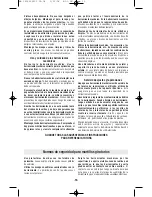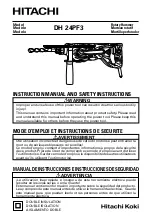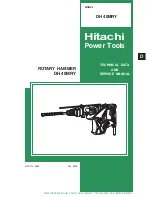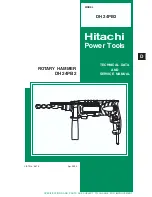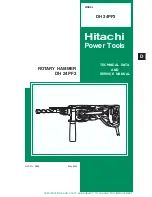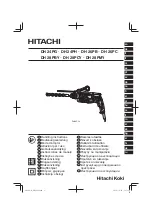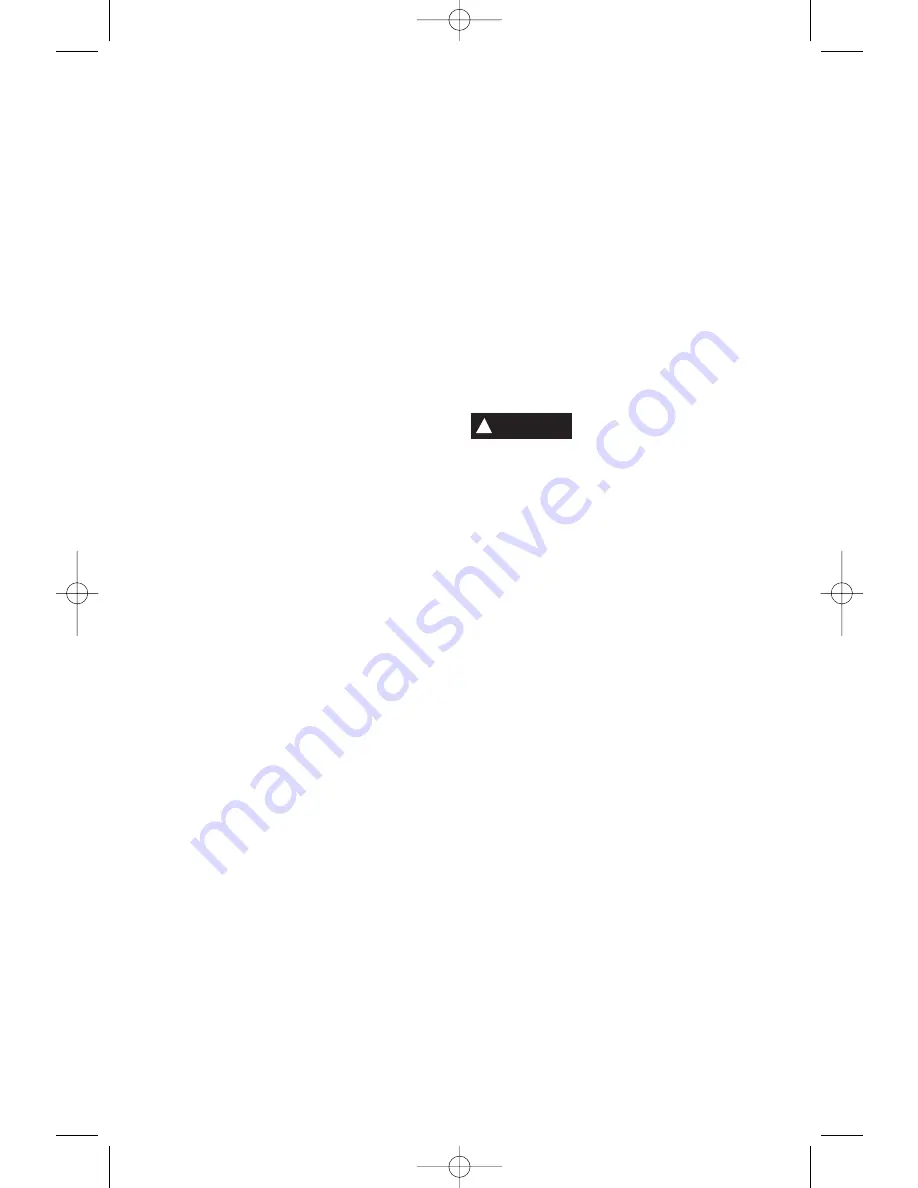
Use a metal detector to determine if there
are gas or water pipes hidden in the work
area or call the local utility company for
assistance before beginning the operation.
Striking or cutting into a gas line will result in
explosion. Water entering an electrical device
may cause electrocution.
Always use the side handle for maximum
control over torque reaction or kick-back.
Never attempt to operate this tool with one
hand.
The slip clutch engages if you firmly
control the tool during a torque reaction or
kickback.
Always wear safety goggles or eye
protection when using this tool. Use a dust
mask or respirator for applications which
generate dust.
Safety goggles or eye
protection will help deflect fragments of the
material that may be thrown toward your face
and eyes. Dust generated or gases released
from the material you are cutting (i.e. asbestos
insulated pipes, radon) may cause respiratory
difficulties.
Use thick cushioned gloves and limit the
exposure time by taking frequent rest
periods.
Vibration caused by hammer-drill
action may be harmful to your hands and
arms.
Position the cord clear of rotating bit. Do
not wrap the cord around your arm or
wrist.
If cord becomes entangled with the
spinning bit it could entrap you causing
serious personal injury.
Position yourself to avoid being caught
between the tool or side handle and walls
or posts.
Should the bit become bound or
jammed in the work, the reaction torque of the
tool could crush your hand or leg.
Do not strike the bit with a handheld hammer
or sledge hammer when attempting to
dislodge a bound or jammed bit.
Fragments
of metal from the bit could dislodge and strike
you or bystanders.
Never place the tool down until the bit or
accessory have come to a complete stop.
Do not use dull or damaged bits and
accessories.
Dull or damaged bits have a
greater tendency to bind in the workpiece.
When removing the bit from the tool avoid
contact with skin and use proper protective
gloves when grasping the bit or accessory.
Accessories may be hot after prolonged use.
Do not run the tool while carrying it at your
side.
The spinning drill bit may become
entangled with clothing and injury may result.
Some dust created by power
sanding, sawing, grinding,
drilling, and other construction activities
contains chemicals known to cause cancer,
birth defects or other reproductive harm.
Some examples of these chemicals are:
• Lead from lead-based paints,
• Crystalline silica from bricks and cement and
other masonry products, and
• Arsenic and chromium from chemically-
treated lumber.
Your risk from these exposures varies,
depending on how often you do this type of
work. To reduce your exposure to these
chemicals: work in a well ventilated area, and
work with approved safety equipment, such as
those dust masks that are specially designed
to filter out microscopic particles.
-4-
!
WARNING
BM 1619929532 02-08 2/15/08 4:00 PM Page 4



















